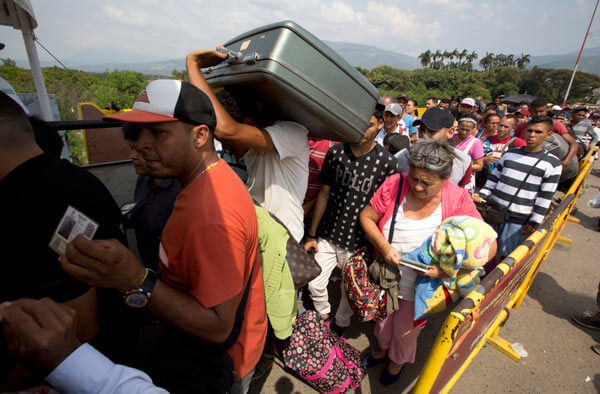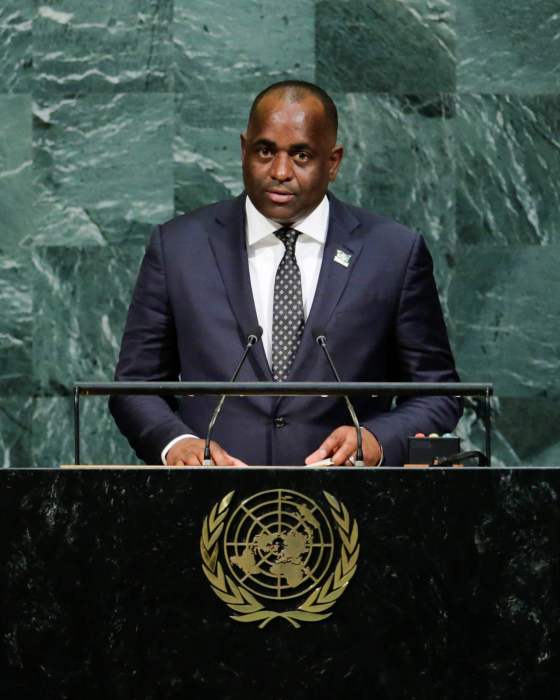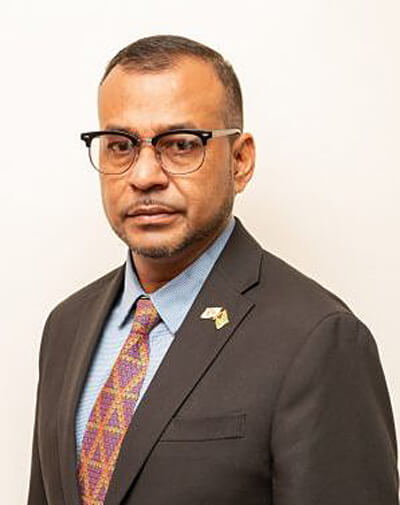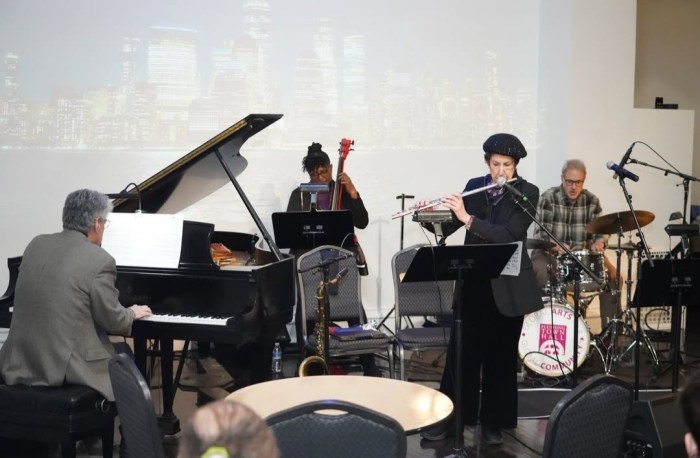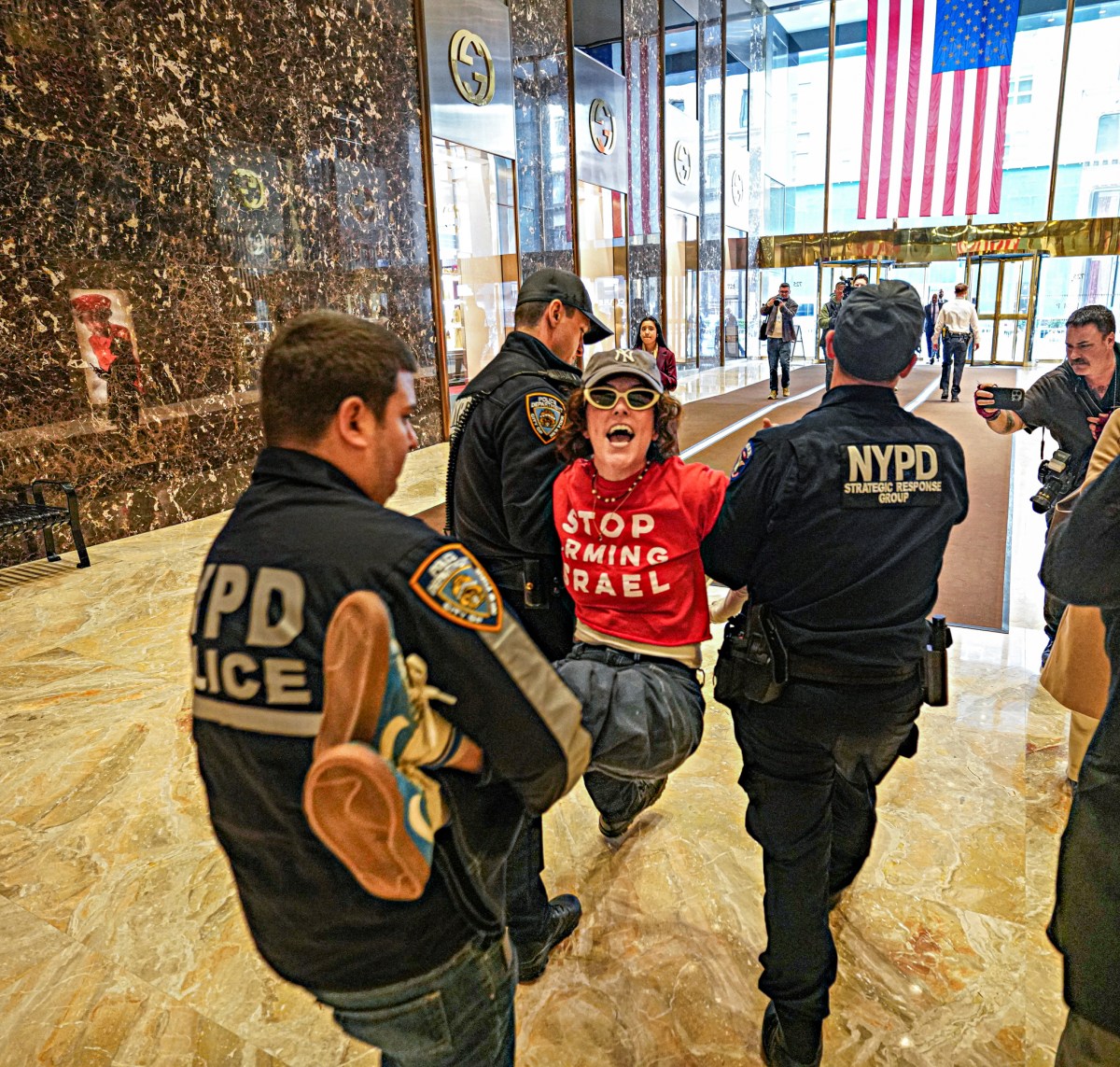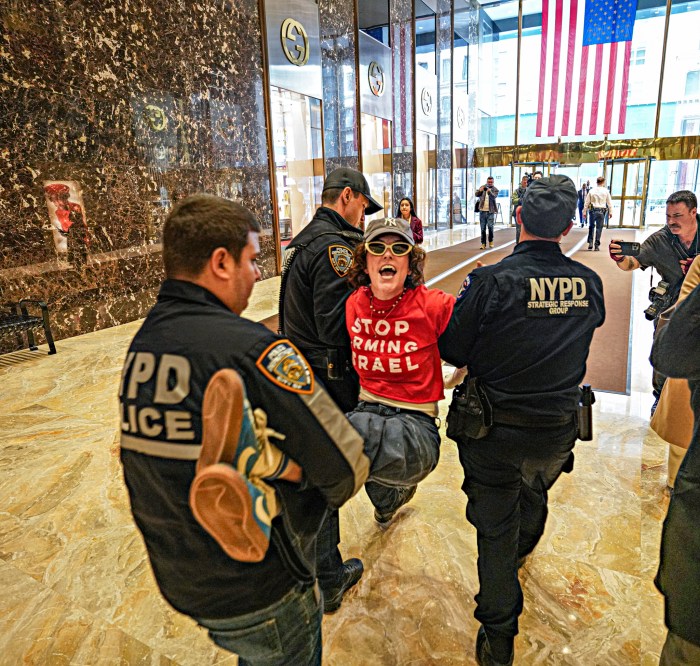Two Caribbean Community countries with close borders to Venezuela are beginning to pay greater attention to an increase in the number of Venezuelans crossing into the two nations, seeking food, jobs, shelter and medical services as the economic and political situation at home worsens.
Authorities in Guyana and Trinidad in particular, say that they are now being asked to cater for large numbers of economic refugees seeking help outside of Venezuela and moves to arrest, charge and deport those who entered the countries illegally are not necessarily working as others are showing up with each passing day.
In recent months, Guyana’s health ministry has sent additional medical staff to severalf bordering districts with Venezuela to deal with arrivals, asking for treatment for illnesses ranging from malaria to fevers to malnutrition.
The military and police have also been forced to send extra teams to the area to deal with general security duties as well as heavily armed criminal gangs harassing gold miners, native Amerindians and visitors to the area.
But Trinidad, just seven miles across the border Gulf of Paria from Venezuela, is feeling the brunt of a growing refugee crisis. Immigration and other officials are beginning to complain.
The island’s immigration department said in the past week that applications for asylum have increased from five persons a year two years ago to 2,000 so far for the year. Officials say they are also not on top of the tally for those making in into the country illegally. What they know is that up to about 200 land in the country each week, looking for jobs, food and money to help struggling relatives back home.
In some cases like is the situation in Guyana, some of those who arrived illegally are hauled before the courts, tried, convicted and are jailed or deported, a development which has irked rights groups and some local legislators as these often lobby for a more humane approach and understanding of the plight of those arriving in the two countries.
Faud Khan, an opposition parliamentarian in Trinidad, this week urged government to relax rules regarding asylum seekers, taking into account the dire situation at home.
“Given the unique situation right next door, I am calling on citizens of Trinidad and Tobago and the government to recognize that our Venezuelan neighbors require special attention, much like the United States and European nations have done for those fleeing persecution. As some of them flee to Trinidad, legally and illegally, we as a people must acknowledge that while their situation might be dire and as they seek refuge here, they must be treated with dignity and respect,” said Khan.
Similar appeals have come from various sections of the society in Guyana, especially when local media carry reports of Venezuelans who are hauled before the courts for entering the country illegally and are jailed and put on the first available flight back to misery.
Just this week, authorities in Suriname, Guyana’s neighbor to the east, urged officials in border towns including Nickerie in the west to be on the lookout for Venezuelans slipping by the system in Guyana and heading into Suriname.
Meanwhile, Trinidadian Immigration Chief Charmaine Gandhi-Andrews said that authorities currently have 67 Venezuelans in detention, most of whom arrive illegally.
“The numbers we have been seeing at the detention center — the majority of them-at least 90 percent of those persons have entered the country illegally or have a criminal conviction, either possession of drugs for the purpose of trafficking or possession of arms and ammunition. Last year, the figure would have been just around 28,000 Venezuelan nationals arriving at a legal port of entry. The numbers we are picking up who have entered the country illegally, we can safely say that larger numbers are arriving. And more are being detained,” she said.
Mismanagement of the lifeline oil sector has helped to tank the economy, dry up foreign exchange reserves and stifle operations at both state and private sector companies.
The result is that Venezuelans are beginning to vote with their feet in increasing numbers, much to the chagrin of officials.


